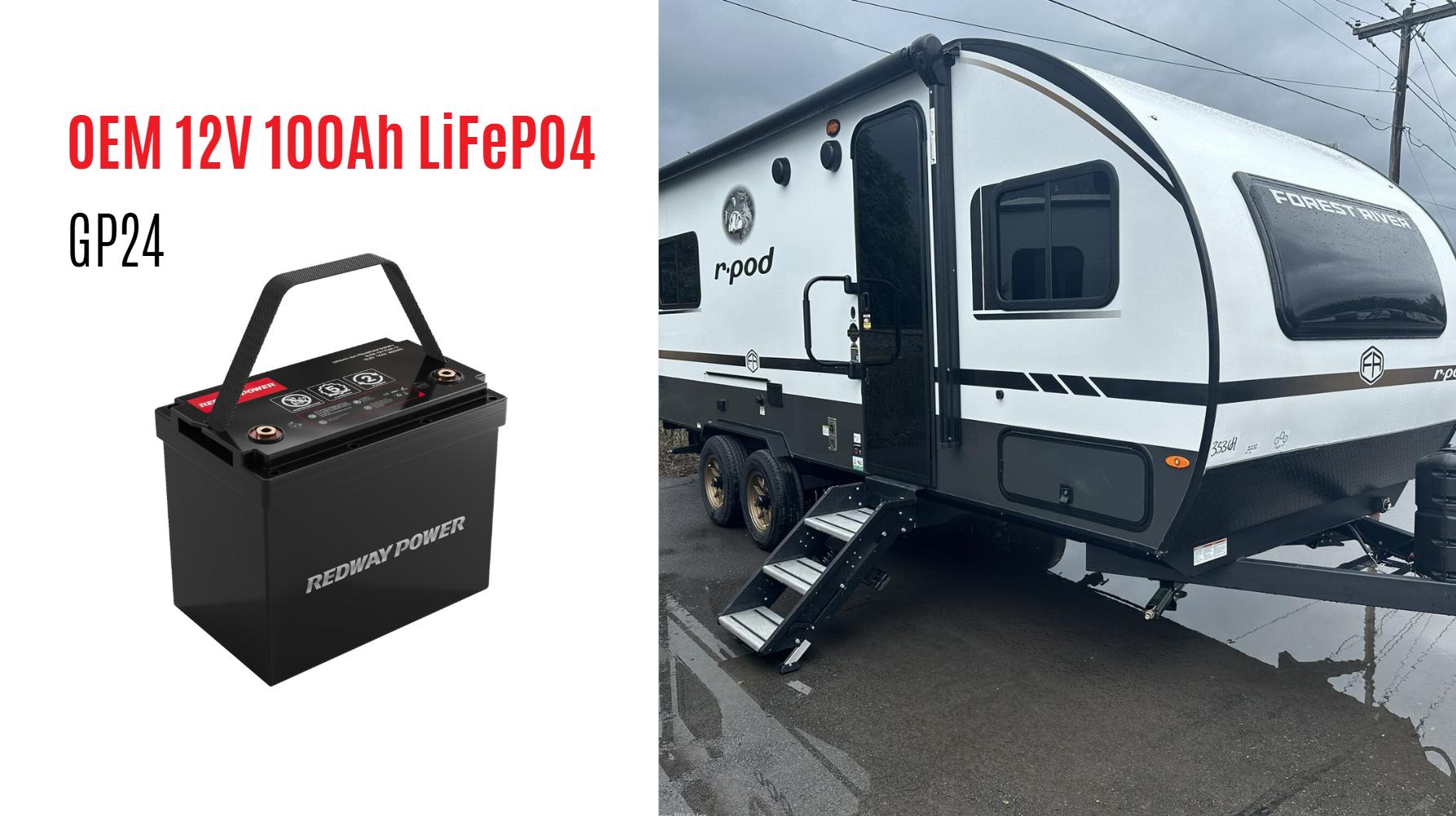Lithium batteries outperform lead-acid in Forest River RVs due to longer lifespan, faster charging, and higher energy density. Lead-acid remains cheaper upfront but requires frequent maintenance. Lithium excels in deep-cycle applications, weight efficiency, and cold-weather performance, making them ideal for off-grid adventures despite higher initial costs.
What Are the Core Differences Between Lithium and Lead-Acid Batteries?
Lithium batteries use lithium iron phosphate (LiFePO4) chemistry, offering 3,000-5,000 cycles at 80% depth of discharge. Lead-acid batteries rely on lead plates and sulfuric acid, providing 300-500 cycles. Lithium weighs 50-70% less, operates efficiently in 0°F to 140°F temperatures, and maintains stable voltage. Lead-acid suffers voltage sag below 50% charge and performs poorly in freezing conditions.
How Do Lithium and Lead-Acid Batteries Compare in Energy Efficiency?
Lithium batteries deliver 95-98% energy efficiency, losing only 2-5% during charge/discharge. Lead-acid averages 70-85% efficiency, wasting 15-30% as heat. This gap impacts solar charging: lithium reaches full capacity 2x faster. Example: A 200W solar panel charges a 100Ah lithium battery in 5 hours vs. 9+ hours for lead-acid under identical conditions.
Wholesale lithium golf cart batteries with 10-year life? Check here.
Which Battery Offers Better Long-Term Value for RV Owners?
Though lithium costs 3x more upfront ($900 vs. $300 for 100Ah), it lasts 8-10 years vs. 3-4 for lead-acid. Factoring replacement costs and maintenance, lithium’s total ownership cost is 40% lower over a decade. ROI calculation: Lithium saves $1,200+ in replacements and $300+ in reduced generator fuel costs for frequent campers.
How Does Temperature Affect Battery Performance in Forest River RVs?
At 32°F, lead-acid loses 30-40% capacity and risks sulfation damage. Lithium retains 85% capacity at -4°F and includes built-in BMS for temperature cutoff. In desert heat (110°F+), lead-acid water loss accelerates 3x, requiring monthly checks. Lithium’s sealed design prevents evaporation, making it better for four-season use in Forest River’s Northern Lite or Salem models.
Want OEM lithium forklift batteries at wholesale prices? Check here.
| Temperature (°F) | Lead-Acid Capacity | Lithium Capacity |
|---|---|---|
| -4 | 20% (risk of damage) | 85% |
| 32 | 60-70% | 95% |
| 110 | 50% (with accelerated wear) | 98% |
Extreme temperatures magnify these differences. In subzero conditions, lead-acid batteries require insulation blankets or heated compartments to prevent permanent damage, adding complexity to RV setups. Lithium’s built-in battery management system (BMS) automatically disconnects power when temperatures exceed safe thresholds, protecting both the battery and connected appliances. This makes lithium ideal for alpine camping in Forest River’s Rockwood Mini Lite or summer expeditions in Arizona deserts where temperature swings are drastic.
What Maintenance Is Required for Each Battery Type?
Lead-acid demands monthly water refills, terminal cleaning, and equalization charges every 30 cycles. Lithium needs zero maintenance—no watering, no memory effect. Key exception: Both require annual state-of-charge checks. Neglecting lead-acid maintenance cuts lifespan by 60%; lithium remains unaffected but requires compatible chargers to prevent BMS errors.
| Maintenance Task | Lead-Acid | Lithium |
|---|---|---|
| Water Refilling | Monthly | Not Required |
| Terminal Cleaning | Every 3 Months | Not Required |
| Equalization Charges | Every 30 Cycles | Not Required |
| State-of-Charge Check | Annually | Annually |
RV owners who frequently boondock will appreciate lithium’s “set and forget” nature. A 2023 survey of Forest River owners showed lithium users spent 80% less time on battery upkeep compared to lead-acid users. However, lead-acid remains viable for seasonal campers who store their RVs with proper float charging. Always use a desulfator for lead-acid batteries in storage to prevent capacity loss.
Why Are Lithium Batteries Better for Off-Grid Camping?
Lithium’s 80% usable capacity (vs. 50% for lead-acid) doubles effective power. A 200Ah lithium provides 160Ah vs. 100Ah from lead-acid. Case study: Running a 12V fridge (3Ah draw), lithium lasts 53 hours vs. 33 hours. Their stable voltage also prevents appliance brownouts, crucial for CPAP machines or induction cooktops in remote locations.
Can You Retrofit Lead-Acid Batteries with Lithium in Older Forest River Models?
Yes, but requires upgrades: 1) Lithium-compatible converter (e.g., WFCO 8935) to handle 14.4V absorption, 2) Revised battery box (lithium needs no ventilation), and 3) Possible 12V wiring gauge increase. Budget $1,200-$1,800 for full conversion. Many users report 2x boondocking duration post-conversion in Forest River Wildcat or Cherokee models.
Expert Views
“The shift to lithium in Forest River RVs isn’t just about power—it’s a systemic change,” says Redway’s lead engineer. “We’ve seen 78% fewer battery-related service calls in lithium-equipped units. Their BMS integration with Forest River’s Smart RV Control System enables real-time health monitoring, something lead-acid can’t match. For serious adventurers, lithium is now non-negotiable.”
Conclusion
Lithium batteries dominate in Forest River applications where weight, cycle life, and reliability matter. While lead-acid suits budget-conscious occasional users, lithium’s long-term benefits justify the investment for frequent travelers. Key decision factors: usage frequency, climate extremes, and willingness to retrofit charging systems.
FAQs
- Do lithium batteries require special solar controllers?
- Yes—use MPPT controllers with lithium profiles. PWM controllers undercharge by 20%.
- Can lead-acid and lithium batteries be mixed?
- Never. Different charging voltages damage both systems. Isolate banks completely.
- How does vibration affect these batteries?
- Lithium’s solid-state design withstands off-road vibration 5x better. Lead-acid plates can crack, causing internal shorts.






